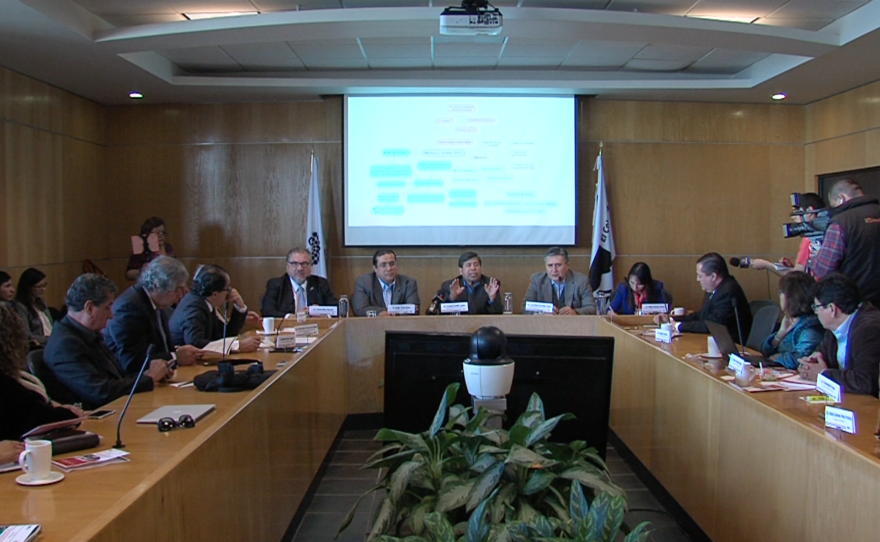Mexican human rights and immigration leaders met in Tijuana on Thursday to discuss a change of strategy in response to an anticipated U.S. immigration crackdown.
Mexico's National Human Rights Commission is sending a group of representatives to all of the main Mexican consulates in the U.S. to ensure that Mexicans living in the U.S. are aware of their rights and are not unfairly targeted.
"We must ensure our co-nationals have due process and that they're aware of the risk of signing voluntary returns," said Luis Raúl González Pérez, president of the commission, speaking at Mexico's border research institute, El Colegio de la Frontera Norte, or Colef.
Voluntary returns are documents often used by U.S. immigration authorities to fast-track deportations. By signing them, immigrants forfeit their right to an immigration hearing. The American Civil Liberties Union won a settlement in 2014 accusing the U.S. government of "coercing" immigrants to sign these forms.
“We want to increase guidance and defense for our co-nationals in the U.S.," said González Pérez.
According to an executive order from president Trump aimed at border security:
"Transnational criminal organizations operate sophisticated drug- and human-trafficking networks and smuggling operations on both sides of the southern border, contributing to a significant increase in violent crime and United States deaths from dangerous drugs. Among those who illegally enter are those who seek to harm Americans through acts of terror or criminal conduct. Continued illegal immigration presents a clear and present danger to the interests of the United States."
Earlier this year, Mexico asked the Inter-American Commission on Human Rights to keep an eye on the implementation of President Trump’s potential new immigration policies, to ensure that nobody's rights are violated.
González Pérez said officials are especially worried about arbitrary detentions. He called Trump's proposed border wall "a symbol of xenophobia, discrimination and exclusion."
He added that the commission plans to urge the federal government to redirect money from promoting tourism toward protecting the rights of Central Americans, Haitians and other migrants moving through Mexico toward the U.S..
"Although tourism is important, the defense of people who seek a better life is even more important," he said.
He said Mexican officials should treat all migrants at the country's southern border the way they want U.S. officials to treat Mexican migrants at the U.S.-Mexico border.






